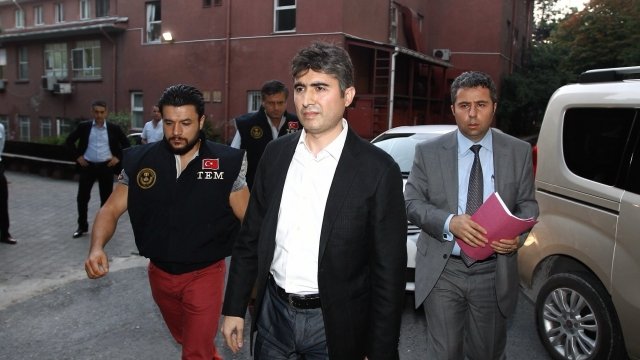Sümeyra Bulduk, a lawyer representing two police chiefs who have been imprisoned since 2014 due to their role in graft probes in 2013 that implicated high-level government officials, said yesterday she was subjected to mistreatment during a visit to her clients.
Bulduk tweeted that she visited her clients, Ömer Köse and Gafur Ataç, in Tekirdağ F-Type Prison on March 25. She said the prison administration subjected her to a strip-search when she was attempting to leave, her lawyer’s license was confiscated and she was prevented from leaving for three hours.
Bulduk said she filed a complaint about the mistreatment but that on October 19, the Tekirdağ Chief Public Prosecutor’s Office ruled there were no grounds for legal action against the prison authorities. Sharing the prosecutor’s decision on Twitter, Bulduk said she was punished for trying to do her job as a lawyer.
Sinirliyim, çok kızgınım ama hiç şaşkın değilim.. Müvekkillerim Ömer Köse ve Gafur Ataç ile cezaevinde görüş yaptıktan sonra çıkış esnasında,üzerimde keyfi olarak arama yapılmasına müsaade etmedim diye avukat kimliğime el konularak cezaevi kapıları 3 saat boyu üzerime kilitlendi. pic.twitter.com/YfWIgjtqsE
— Sumeyra Bulduk (@sumeyrabulduk) December 9, 2021
“I have filed many complaints against the prison for violating the rights of clients,” she said. “As a result, the prison authorities have taken it upon themselves to punish me.”
Köse has been complaining for months that his water was limited and that running water to his cell was cut off in the afternoons. Köse is being kept in a solitary cell, which is lacking in proper heating and basic necessities.
Bulduk said after her visit her clients’ cells were searched for a week. “Authorities went through every item in their cells including the insides of televisions,” she said.
Erinç Sağkan, who was just elected president of the Union of Turkish Bar Associations, said in a statement on Twitter that he was aware lawyers were frequently punished for doing their job and had promised to support such lawyers.
According to Turkish legal and preventative search regulations, strip-searches can only be conducted in exceptional cases, such as when there are credible indications that the person has contraband materials on their person. In such cases, the search must be conducted in a manner so as not to humiliate the person and as quickly as possible. When there is a credible suspicion that something is hidden in the person’s body, officers are required to ask the person to remove it himself and inform him that if he disobeys, the removal will be done by the prison doctor.
The European Court of Human Rights has found strip-searches to constitute degrading treatment when not justified by compelling security reasons and/or due to the way they were conducted. But the practice has been frequently used by Turkish security forces against people suspected or convicted of political crimes.















